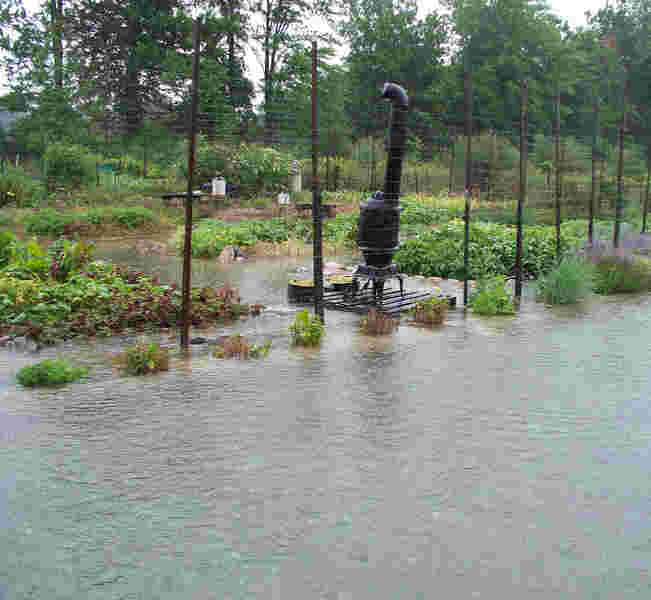Zeedman
Garden Master
Wow!!! Your garden gets even more standing water than mine - it looks like aquaculture. You'll know you've reached the point of no return when some of your worst weeds are cattails, and willow & cottonwood seedlings. Ask me how I know this...i like learning about this sort of thing.so keep on, keepin' on!
as far as failures due to weather @thistlebloom this year my garlic was ok even with all the rain we had and also the fact that it was grown in fairly heavy soil. the main part of what works there is that patch is one of the raised beds inside the fenced area so that it does not hold any water for long. it is about a foot above the pathway a 3 feet by 20ft area or so along the south edge. i have been planting garlic in parts of it the past few years and just finished the rotation so i'm not sure where i will plant it for this coming season.
originally i wanted to remove the pathways and to fill that end of that fenced garden all in (to get it above the flash flood water level as shown in:

)but we just don't have that kind of fill available. the pathways are pretty much the drains of that space and there is a few drain tubes installed to remove the water without taking away any more topsoil.
on the whole, even with all the weather oddities of the year i'd say we did pretty good. all of the main crops did well enough: peas, garlic, onions, tomatoes, cucumbers. the squash didn't do as much as usual because we didn't plant as much but also because it was much later than it should have been. it looks like the whole crop is the kabochas, i see none of the buttercup crosses we have had before in this harvest. i'm not sure if they are gone or not for good.
beans have done well enough for the efforts put in. i do think i have to downsize my experimental plantings though because i get a lot of marginal production from a lot of those so i should plant more productive plants in more of the gardens and limit some of the experiments. it's a bit too much here in my room trying to keep track of about 100 flats as they are drying down and another bunch that have various other things going on at the same time. hard to resist planting them though when it really is the only way i have of answering questions.

